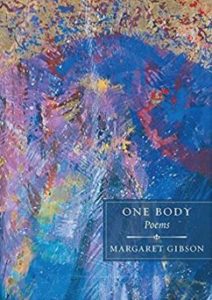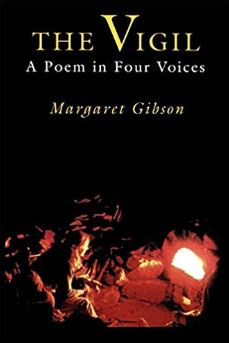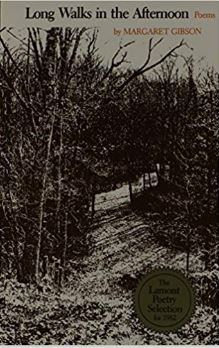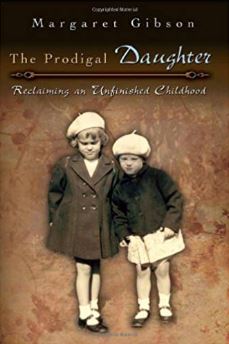Draw Me Without Boundaries
from LSU Press 2024
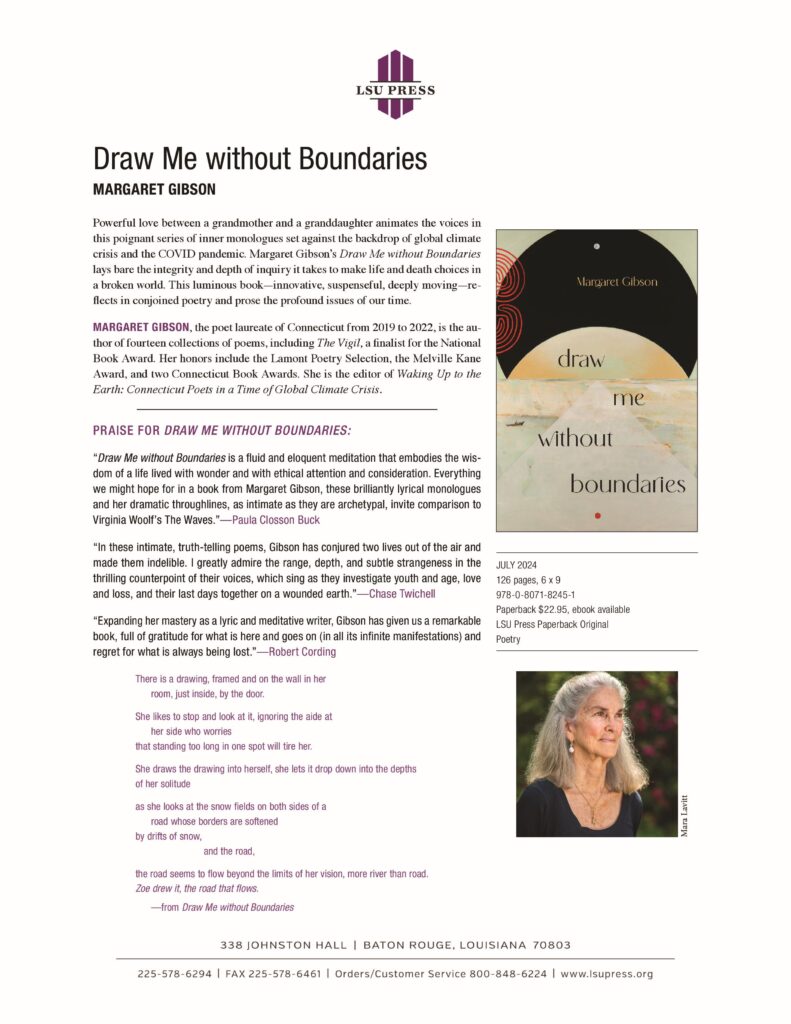
Waking Up To The Earth: Connecticut Poets in a Time of Global Climate Crisis
Edited by Margaret Gibson, Connecticut State Poet Laureate
“Pausing to savor whichever luminous poem takes your fancy in this treasure-chest of an anthology, you will find yourself in a world we all live right next to, but which these poets of Connecticut—by their rapt attention to details big or small—make freshly available. Whether its end is political judgment or simply the deepening of pleasure in and understanding of the natural world, each poem here is an act of patient attention. Waking Up to the Earth is a timely, powerful, and persuasive wake-up call. Read in it; read through it. It will not leave you unchanged.” -Eamon Grennan
“It’s hard to believe that the poems in this essential collection all come out of a single small state. But make no mistake; these are not poems about Connecticut. They are poems about the world—our one and only world—and the damage we inflict upon it. Ranging from expressions of profound love for and intimacy with the earth and its many creatures to grief and rage at our species’ self-destructive blindness, each poem is a testament to our planet’s preciousness and a grave warning of its fragility. Waking Up to the Earth is a resounding wake-up call.” -Chase Twichell
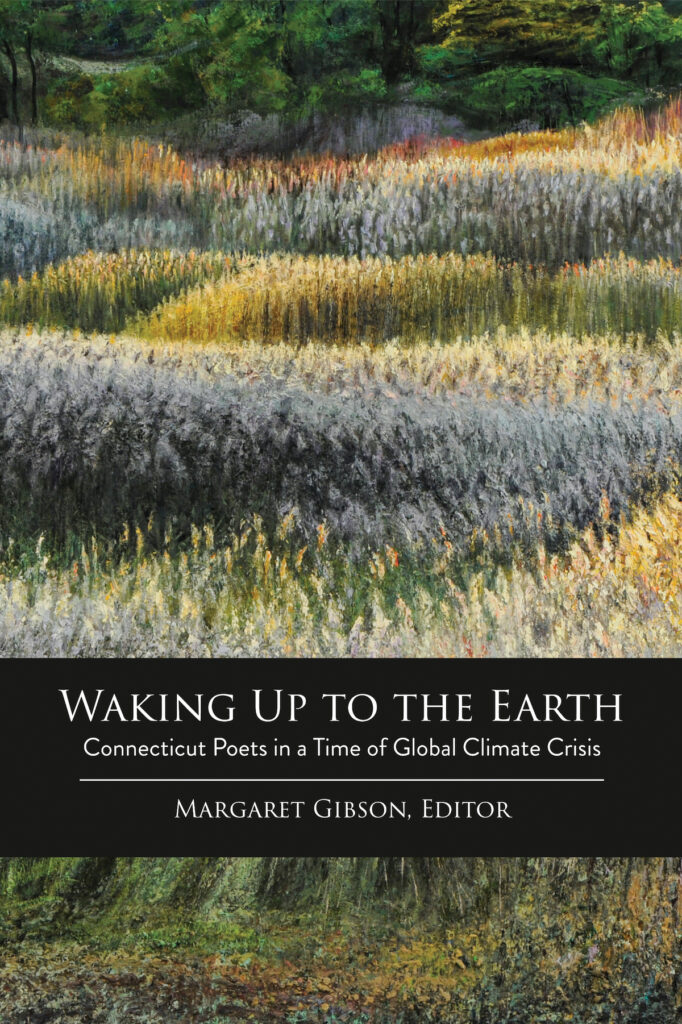
“The Glass Globe, Not Hearing the Wood Thrush, and Broken Cup: A Trilogy”
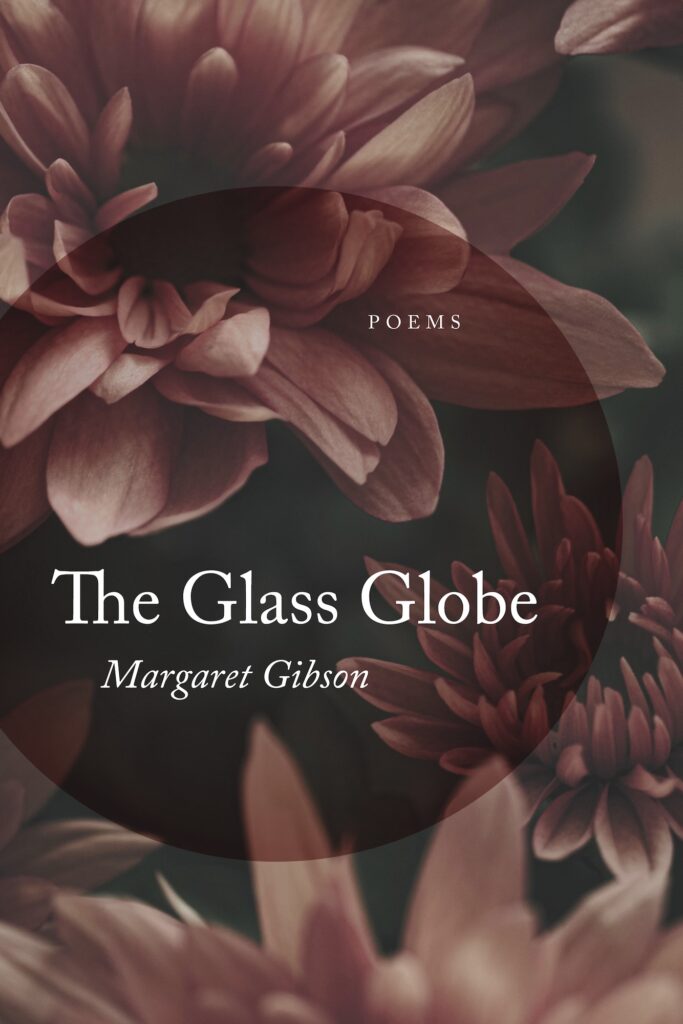
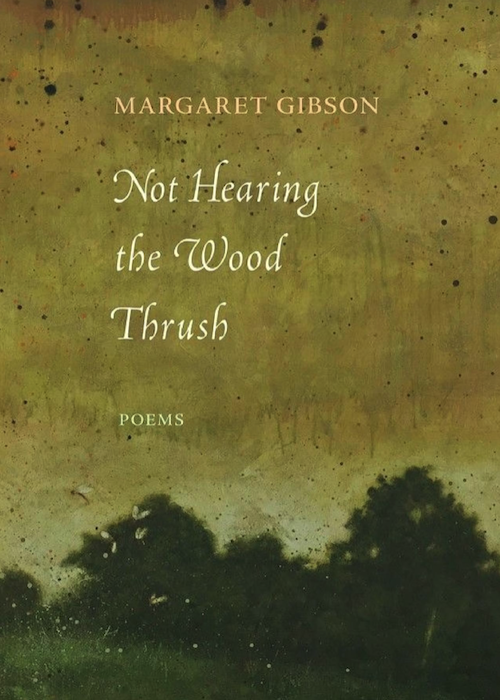
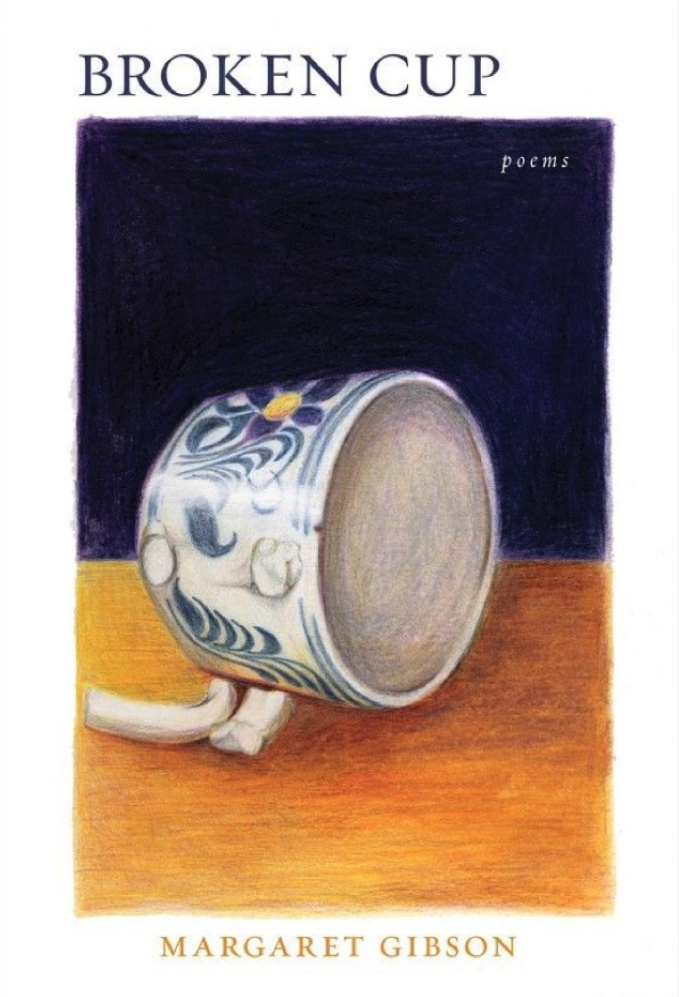
The Glass Globe by renowned poet Margaret Gibson completes a trilogy distinguished by its meditative focus on Gibson’s experience of her late husband’s Alzheimer’s disease. In this new book, the crown of the trilogy, Gibson’s personal bereavement expands to include grief engendered by global climate crisis. In the opening poem, the poet washes the body of her late husband; the collection concludes with “washing” the body of the endangered earth. The poems in The Glass Globe are acutely aware that grief, as a form of love, calls out for change, for transformation.
For over forty years, Margaret Gibson’s poems have consistently been praised for their incisive passion and for language that is both plainspoken and lyrically gorgeous. Her poems move from the ordinary to the vast at a moment’s notice, holding the reader in an intimate net of stunning images. Gibson is a poet who meditates on the word inside the word, who looks at evidence of impermanence in order to discover that which remains. Image by image, she relishes earth’s beauty and does not ignore how we ravish it. Gibson is a poet who asks us to turn harm into healing.
Indeed, the entire trilogy is about healing. While each of the three books can stand alone, together their full power is realized. Broken Cup (2014) presents not only the panic and confusion of memory loss and incurable disease but finds within illness a way of examining both the impermanence of the self and the abiding nature of love. In Not Hearing the Wood Thrush (2018) a personal loneliness is transformed to solitude, solitude to wakeful, rapt attention to a larger world that is both material and spiritual. In The Glass Globe, Gibson writes with a sweeping eloquence that is also fearless. As she examines the irrevocable damage to the planet and the threat of extinctions that spare no one, the poems temper censure with compassion. Weighing the evidence of severance and loss, she dares to affirm continuity and fidelity. Facing the irrevocable, she finds a way to bow to “whatever it is in us sees through arising and passing.” The Glass Globe is a timely, necessary, and heartbreaking work by one of our most compelling poets.
The Glass Globe
The Glass Globe, to be published in August, 2021 by LSU Press, carries two interwoven themes. “It begins with a poem about washing my husband’s body after he had just died. And the last poem is about washing the planet. These are poems about grieving the loss of my husband and an awareness of what’s happening in the natural world, my environmental grief. They weave around each other.”
“Every once in a great while, a book permanently enlarges my understanding of human consciousness. These poems embody everything I look for when I read: clarity, passion, fearlessness, depth of feeling, and absolute honesty. Their language is essential, by which I mean there is no gratuitous imagery, zero linguistic showing-off. Every word is necessary. Because the poems are born out of grief, in this case personal and environmental, their many joys carry weight that both deepens and heightens them. The Glass Globe is a brilliant book. -Chase Twichell
“And last we washed his body,” is the startling first line in this extraordinary latest collection by Margaret Gibson, calling us to attend upon a series of the most unsparingly truthful, physically and emotionally laden poems-as-meditations I’ve ever read. Gibson’s imaginative reach is intimate and wide-ranging, fusing personal grief and the natural, endangered world. The Glass Globe may be a world unto itself, an extended elegy created by language that is lyrical and philosophical in the deepest sense—but thanks to Gibson’s empathetic and generous imagination, it is also our world, human and earthbound. -Eamon Grennan
The steady pulse audible throughout this collection is grief, but it’s a grief tempered by recurrent redemptive moments born of rapt attention and also by the gifts of memory. Gibson’s wisdom and strength are evident in these poems. A sharp-eyed observer, open to awe and wonder, she asks “to be that place where inner and outer meet.” Over and over, the tough and tender poems in The Glass Globe take us to that place. -Rachel Hadas
Not Hearing the Wood Thrush
Published September 2018
“This is quite simply an amazing book: deeply moving and insightful, potent and restrained, focused and thoughtful, mercurial and defiant, personal and yet too mindful and philosophical to be merely so.” – Bruce Bond
“I look about and find whatever I see/unfinished.” Margaret Gibson writes in these powerful and moving poems, which investigate a late-life genesis. Not Hearing the Wood Thrush grapples with the existential questions that arise after experiencing a great personal loss. A number of poems meditate on loneliness and fear; others speak to “No one”—a name “richer than prayer or vow.” In this transformative new collection, Gibson moves inward, taking surprising, mercurial turns of the imagination, guided by an original and probative intelligence. With a clear eye and an open heart, Gibson writes, “How stark it is to be alive”—and also how glorious, how curious, how intimate.”
Broken Cup
Published in 2014
“Among its many virtues, Broken Cup is a great love story, and I’m using the word “great” both carefully and precisely. Gibson’s book traces her husband’s early Alzheimer’s and her soulful attention to him and it . . . In her title poem, she states that if the cause of things is beyond us, it is still possible to “love what is broken.” Not only possible but “urgent and necessary.” Her poems have an exquisite lyrical intelligence.” – Stephen Dunn
“Margaret Gibson brings a master poet’s breathtaking eloquence to the witnessed, lived through, resilient intertwining of full presence and love in these pages describing the shared journey of her poet-husband’s Alzheimer’s. Broken Cup is indispensable, both for its necessity and its extraordinary beauty.” – Jane Hirshfield
Published Work
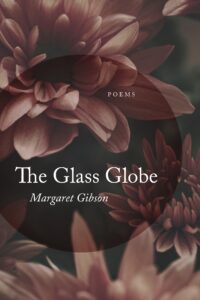
The Glass Globe
The Glass Globe carries two interwoven themes. “It begins with a poem about washing my husband’s body after he had just died. And the last poem is about washing the planet. These are poems about grieving the loss of my husband and an awareness of what’s happening in the natural world, my environmental grief. They weave around each other.”
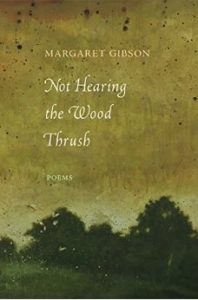
Not Hearing the Wood Thrush
“This is quite simply an amazing book: deeply moving and insightful, potent and restrained, focused and thoughtful, mercurial and defiant, personal and yet too mindful and philosophical to be merely so.” – Bruce Bond
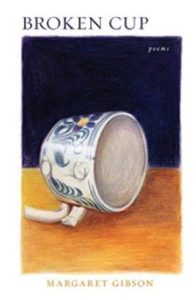
Broken Cup
Broken Cup brings breathtaking eloquence to what Margaret describes as "traveling the Way of Alzheimer's."
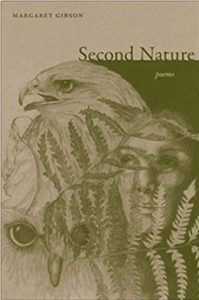
Second Nature
Second Nature takes Ezra Pound's stern counsel - "Learn of the green world what can be thy place." - to heart. With stunning clarity...
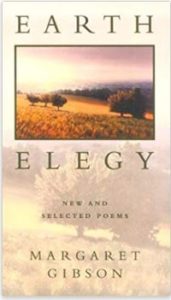
Earth Elegy
Earth Elegy gathers new poems showing the earth is a place of marvels and, at times, tragic...
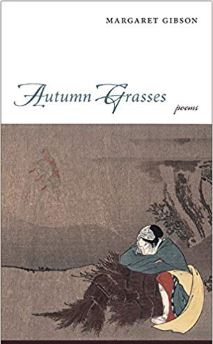
Autumn Grasses
"Autumn Grasses is inspired by the art of Japan and by the dynamic stillness..."
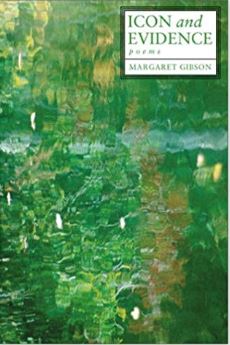
ICON and EVIDENCE
With Icon and Evidence, Margaret Gibson gives us poems grounded in reverence, inquiry and sensuous delight...
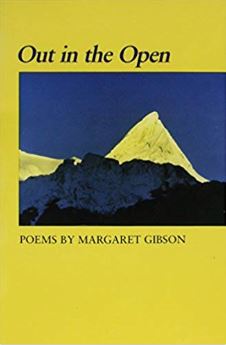
Out in the Open
Out in the Open is the desert longing, or soul-clarity, a transparency that accepts no consolation...

Signs
"Gibson's poems are less events than the meditative siftings of an unusually sensuous mind"... Signs is out of print(collector's item).
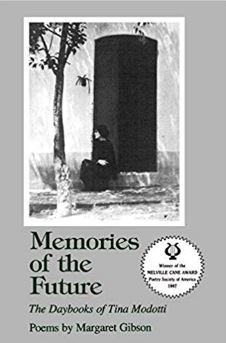
Memories of the Future
Memories of the Future, the Daybooks of Tina Modotti, Winner of Melville Kane Award, 1986-1987...
